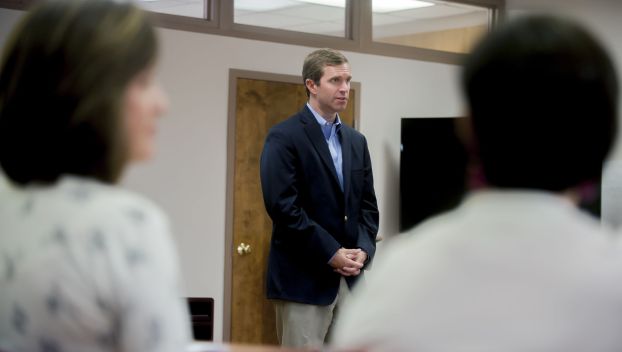
News
Beshear discusses ‘big pharma,’ pension with health department officials
Kentucky Attorney General and Democratic gubernatorial candidate Andy Beshear and Rep. Patti Minter, D-Bowling Green, toured the Barren ... Read more

Kentucky Attorney General and Democratic gubernatorial candidate Andy Beshear and Rep. Patti Minter, D-Bowling Green, toured the Barren ... Read more
An attorney representing Western Kentucky University’s campus newspaper in a lawsuit over access to employee sexual misconduct records ... Read more
GLASGOW – As its members considered the input of professionals from several agencies, the Glasgow Electric Plant Board ... Read more
A sexual assault awareness video created by Western Kentucky University students has been named a winner in Kentucky ... Read more
Kentucky Attorney General Andy Beshear has joined a lawsuit between Western Kentucky University and its student newspaper, the ... Read more
Attorney General Jeff Sessions is a good, honorable and intelligent man who will do an excellent job as ... Read more
An Allen County man is accused of possession and distribution of child pornography. William Crowe, 32, of Scottsville, ... Read more
Out of the blue, Gerald Keyser was informed earlier this month that he was a millionaire, the lucky ... Read more

Two new victims have come forward claiming they were scammed by a man who targets the Hispanic community. ... Read more
A Todd County man was indicted Monday by a Logan County grand jury for an alleged investment scam. ... Read more